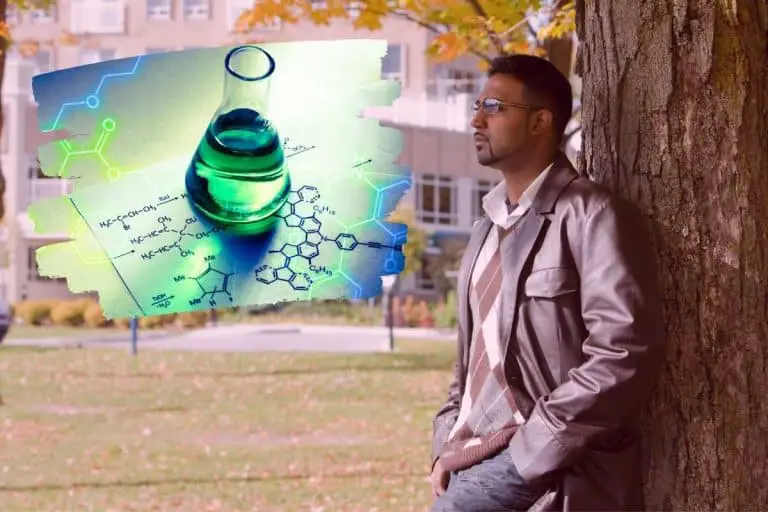Should You Take Microbiology in the Summer?
Summer courses can be an attractive way to do a subject and get it out of the way. Particularly for those looking to get into a professional school in July, a summer course can help you get a complete application together, but should you take microbiology in the summer?
Microbiology is one of the more intensive summer courses and should only be taken if you have a good grounding in chemistry, anatomy, and physiology. Do it over a full-length semester unless there’s a pressing reason to get the course done now.
We’ll look at issues with the compressed summer schedule and what microbiology involves as a course. We’ll also look at some of the difficulties surrounding microbiology and how to get the most out of choosing it as a subject.

The Challenge of Compressed Summer Schedules
Any classes taken over the summer are by their nature going to be compressed. Microbiology includes lectures and labs, which further increases contact hours squeezed into a 6 to 10–week course, meaning an accelerated pace.
Several colleges offer microbiology over the summer, and you can look at their class schedules, so you know what you’re in for. Some summer courses are offered at night. As lab work features heavily in most microbiology courses, you can expect to be in a lab a few times a week.
Colorado Community College has a 10–week course, whereas Cleveland Community College’s course runs for nine weeks, and Columbia University’s summer classes are closer to 6 weeks.
Sources: Colorado Community College, Cleveland Community College, and Columbia University.
You can expect tests, quizzes, lab work, or other assignments due every week for any summer course. The pace will be markedly quicker than even a typical college-level class, and you may have class every day.
One common issue with the accelerated schedule is that you must learn differently. While some students may understand and memorize complicated systems quickly, you may find that your understanding doesn’t come until a month later.
If you don’t pick up concepts quickly, the combination of microbiology with the compressed schedule might be hard to juggle. The blistering pace of summer learning will leave you little time to master concepts before you move to the next chapter.
Taking a summer course also means you don’t get much of a break. You finish one semester, complete exams, then you’re starting right up again for the summer course. You have an intense course of study, only to complete that and then jump straight back into the next term.
Summer courses are a widespread cause of burnout because it means you’re taking a full academic year with no breaks whatsoever, perhaps a week at most between intakes. If you are working to finish school a year early, summer courses might be a good idea.
However, you need to take into account this burnout factor when planning your courses.
How Hard Is Microbiology Compared to Other Subjects?
Microbiology has some prerequisites that’ll give you an indication of its difficulty. A look at Washington University’s page is typical of what is needed, with their introductory General Microbiology class requiring a chemistry class called Chem 120 A: Principles of Chemistry.
To pass this chemistry course, you need to be familiar with:
- Matter and energy
- Chemical nomenclature
- Chemical reactions
- Stoichiometry
- Modern atomic theory
- Chemical bonding
These topics underlie the core of a microbiology course at any institution.
In essence, microbiology is the study of all microscopic living organisms, including bacteria, viruses, algae, and many other microbes. The chemical processes that underlie microbe activity can be complicated.
Microbiology also builds on concepts learned in Anatomy and Physiology, which means if you struggled in either of these courses, microbiology is likely to be a struggle and would be best done over a regular semester rather than the summer semester.
Microbiology courses range in credit, but typically there are three or four credits on offer.
Classes that cover a semester sometimes offer up to five credits. You can expect that a microbiology course will require heightened concentration and focus compared to many other subjects.
Source: Ohio State University
Doing Well in Summer Microbiology
As microbiology is about learning processes around microscopic organisms, you must remember many new words and terminology. This process must start with an effective memorization technique for all this new material, and it must begin before your course commences.
Spaced repetition flashcard systems (SRS) are some of the most effective memorization techniques. It involves running through information and marking the parts you don’t know. After that, the software will only prompt you to remember the items you got wrong last time.
You can create your SRS collection for microbiology based on headings, keywords, and prompts from your learning materials.
Source: Nature Reviews Neuroscience Journal
If you don’t think you can dedicate daily time to this type of study, summer microbiology courses are unlikely to be a good fit for you.
Conclusion
Summer classes can get you through your course faster, allow you to apply for professional schools quicker, and provide the freedom of a smaller course load throughout the year. However, summer courses are pretty fast-paced, and you won’t have much break time.
The summer is a critical holiday for college students, and you don’t want to get burned out.
On top of this, microbiology is one of the trickier subjects at college over the fall or spring. Add the pressure of a six or 10-week blitz, and you may find yourself struggling unless you feel confident in science subjects.
Recommended Reading:






